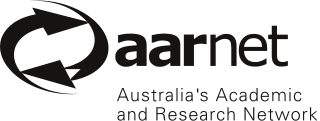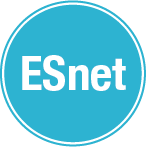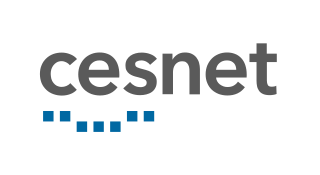
GÉANT is the pan-European data network for the research and education community. It interconnects national research and education networks (NRENs) across Europe, enabling collaboration on projects ranging from biological science, to earth observation, to arts and culture. The GÉANT project combines a high-bandwidth, high-capacity 50,000 km network with a growing range of services. These allow researchers to collaborate, working together wherever they are located. Services include identity and trust, multi-domain monitoring perfSONAR MDM, dynamic circuits and roaming via the eduroam service.

Janet is a high-speed network for the UK research and education community provided by Jisc, a not-for-profit company set up to provide computing support for education. It serves 18 million users and is the busiest National Research and Education Network in Europe by volume of data carried. Previously, Janet was a private, UK-government funded organisation, which provided the JANET computer network and related collaborative services to UK research and education.
The National Science Foundation Network (NSFNET) was a program of coordinated, evolving projects sponsored by the National Science Foundation (NSF) from 1985 to 1995 to promote advanced research and education networking in the United States. The program created several nationwide backbone computer networks in support of these initiatives. Initially created to link researchers to the NSF-funded supercomputing centers, through further public funding and private industry partnerships it developed into a major part of the Internet backbone.

Internet2 is a not-for-profit United States computer networking consortium led by members from the research and education communities, industry, and government. The Internet2 consortium administrative headquarters are located in Ann Arbor, Michigan, with offices in Washington, D.C., and Emeryville, California.

Abilene Network was a high-performance backbone network created by the Internet2 community in the late 1990s. In 2007 the Abilene Network was retired and the upgraded network became known as the "Internet2 Network".
SUNET is the Swedish University Computer Network. SUNET provides high-speed Internet access to academic institutions in Sweden. The current incarnation of the network, Sunet C, provides 100 Gbit/s links between the cities hosting universities. It replaces the older network, OptoSunet, based mainly on 10 and 40 Gbit/s links. SUNET's upstream network is the Nordic NORDUnet. SUNET is governed by a board appointed by the Swedish Research Council (Vetenskapsrådet). In addition to the board there is a technical reference group and a development group, as well as people working at the participating universities.

AARNet provides Internet services to the Australian education and research communities and their research partners.
A national research and education network (NREN) is a specialised internet service provider dedicated to supporting the needs of the research and education communities within a country.

RedCLARA: the Latin American space for collaboration and development in education, science and innovation

The Trans-European Research and Education Networking Association was a not-for-profit association of European national research and education networks (NRENs) incorporated in Amsterdam, The Netherlands. The association was originally formed on 13 June 1986 as Réseaux Associés pour la Recherche Européenne (RARE) and changed its name to TERENA in October 1994. In October 2015, it again changed its name to GÉANT and at the same time acquired the shares of GEANT Limited.
The Corporation for Education Network Initiatives in California is a nonprofit corporation formed in 1997 to provide high-performance, high-bandwidth networking services to California universities and research institutions. Through this corporation, representatives from all of California's K-20 public education combine their networking resources toward the operation, deployment, and maintenance of the California Research and Education Network, or CalREN. Today, CalREN operates over 8,000 miles of fiber optic cable and serves more than 20 million users.

The Energy Sciences Network (ESnet) is a high-speed computer network serving United States Department of Energy (DOE) scientists and their collaborators worldwide. It is managed by staff at the Lawrence Berkeley National Laboratory.

CESNET is developer and operator of national e-infrastructure for science, research, development and education in Czech Republic. The CESNET association was founded in 1996 by Czech public universities and the Academy of Sciences of the Czech Republic. An important part of CESNET's activities is research of advanced network technologies and applications from hybrid networking, programmable hardware, metacomputing to middleware and video transmissions. CESNET fulfils the role of NREN within the Czech Republic and represents it in international organisations such as the GÉANT Association, EGI and GLIF. CESNET is involved in the implementation of the European backbone network project called GÉANT. Within the Czech Republic CESNET fulfils the role of a coordinator of large infrastructures involved in the field of information technology.

SURF is an organization that develops, implements and maintains the national research and education network (NREN) of the Netherlands. It operates the national research network formally called SURFnet.
EUnet was a very loose collaboration of individual European UNIX sites in the 1980s that evolved into the fully commercial entity EUnet International Ltd in 1996. It was sold to Qwest in 1998. EUnet played a decisive role in the adoption of TCP/IP in Europe beginning in 1988.

eduroam is an international Wi-Fi internet access roaming service for users in research, higher education and further education. It provides researchers, teachers, and students network access when visiting an institution other than their own. Users are authenticated with credentials from their home institution, regardless of the location of the eduroam access point. Authorization to access the Internet and other resources are handled by the visited institution. Users do not have to pay to use eduroam.
Delivery of Advanced Network Technology to Europe (DANTE) is a not-for-profit company that plans, builds and operates the consecutive generations of the backbone network that interconnects the national research and education networks (NRENs) in Europe. The organisation is based in Cambridge, United Kingdom and was formed in 1993 as a limited liability company owned by Réseaux Associés pour la Recherche Européenne (RARE). Ownership was transferred to a number of NRENs and government agencies in 1994.
A dynamic circuit network (DCN) is an advanced computer networking technology that combines traditional packet-switched communication based on the Internet Protocol, as used in the Internet, with circuit-switched technologies that are characteristic of traditional telephone network systems. This combination allows user-initiated ad hoc dedicated allocation of network bandwidth for high-demand, real-time applications and network services, delivered over an optical fiber infrastructure.
The Israel InterUniversity Computation Center (IUCC), implements, operates and maintains the national research and education network (NREN) of Israel.

Cornelis Adrianus Maria "Kees" Neggers is a Dutch Internet pioneer. He is best known for starting and promoting many initiatives for international collaboration in research and education networking.











